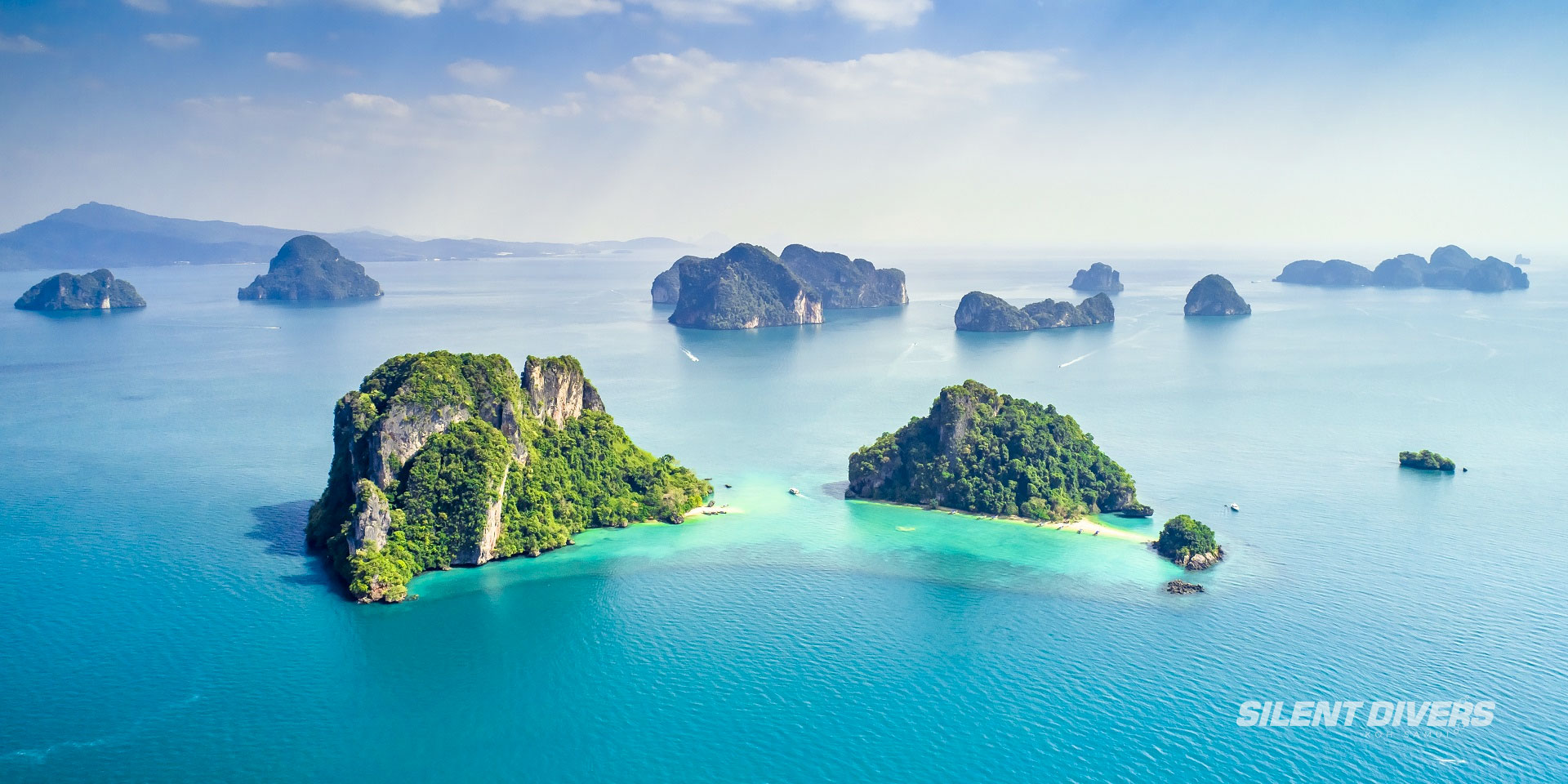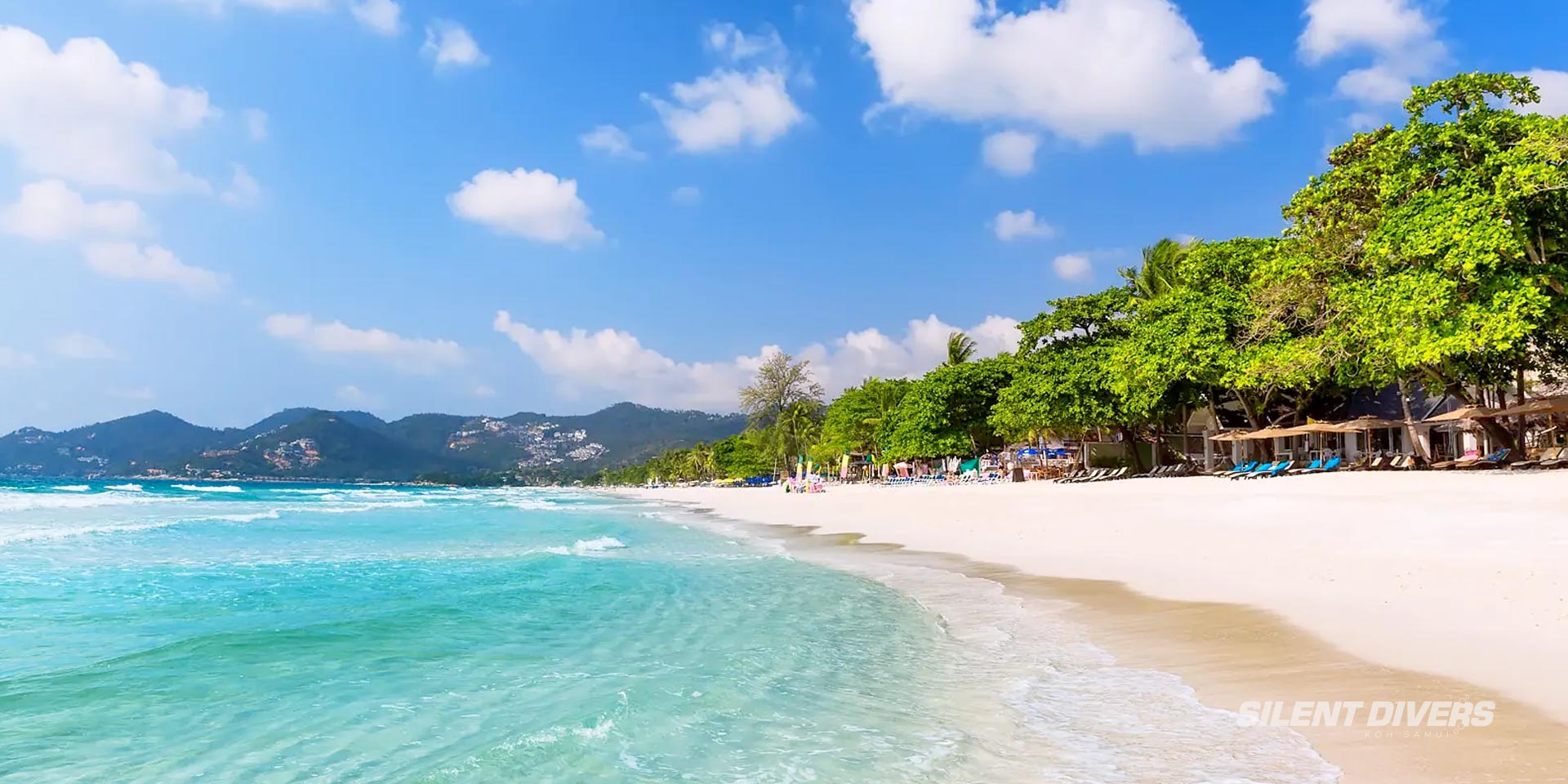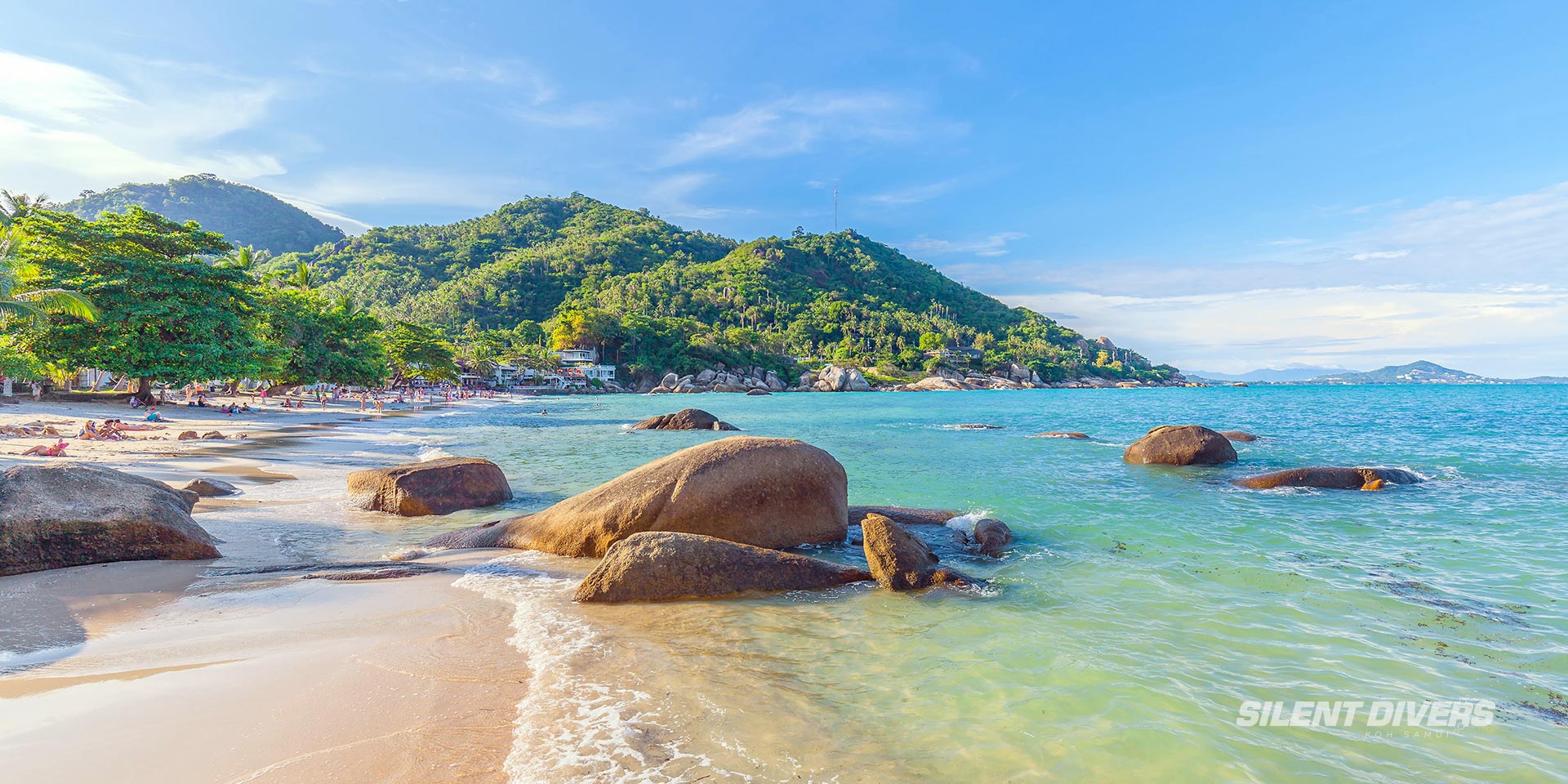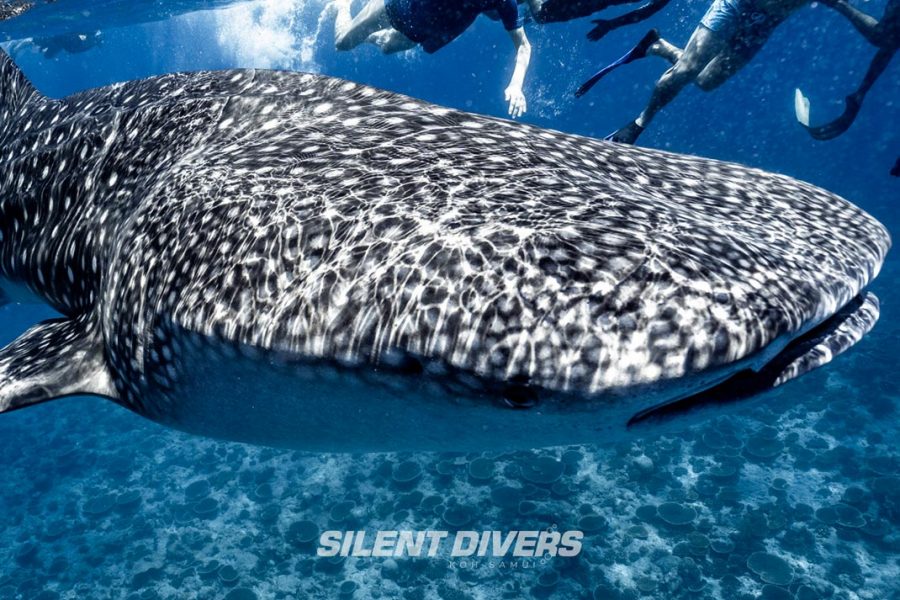Comparing the climate in Koh Samui vs Phuket
Thailand, celebrated for its pristine beaches and vibrant culture, beckons millions of travelers each year to its tropical paradise. Among its illustrious destinations, Koh Samui on the Gulf of Thailand emerges as a captivating gem with its unique seasonal tapestry. In this exploration, we delve into the distinctive weather patterns, contrasting rainy and dry seasons, and temperature variations that define the tropical haven of Koh Samui, setting it apart from the well-known Phuket on the Andaman Sea.

Phuket on the Andaman Sea
Nestled along the Andaman Sea, Phuket boasts a tropical monsoon climate, showcasing two prominent seasons – the dry season and the rainy season. From November to April, the island bathes in sun-drenched days and pleasant temperatures ranging from 24°C to 32°C, making it an idyllic period for beach activities, water sports, and cultural exploration. The transition to the southwest monsoon in April marks the onset of the rainy season, lasting from May to October. Despite increased rainfall, Phuket remains lush and inviting, with temperatures ranging from 24°C to 30°C, offering a delightful respite from the dry season’s heat.
Koh Samui on the Gulf of Thailand

On the opposite side of the country, Koh Samui, perched on the Gulf of Thailand, boasts a tropical monsoon climate with its own unique seasonal rhythm. The island’s dry season spans from December to February, greeted by the refreshing northeast monsoon. This period sees clear skies, gentle breezes, and temperatures ranging from 25°C to 32°C – ideal conditions for beach enthusiasts, outdoor activities, and scuba divers. From September to November, Koh Samui gracefully transitions into its rainy season as the southwest monsoon arrives, bringing heavier rainfall and occasional storms. Despite the rain, temperatures linger between 24°C to 31°C, creating a lush and charming landscape unique to this tropical haven.
Climate in Koh Samui vs Phuket
While both Phuket and Koh Samui share tropical monsoon climates, the offset in their seasons due to geographical locations allows travelers to experience Thailand’s diverse beauty year-round. Phuket’s peak tourist season aligns with its dry season from November to April, while Koh Samui’s prime months unfold from December to February. Travelers seeking to explore both destinations without encountering heavy rains can strategically plan visits, capitalizing on the complementary seasons offered by these two tropical paradises.
Weather in Koh Samui vs Phuket: A Month-by-Month Comparison
January – Cool and Pleasant
- Koh Samui: January is one of the best months to visit Koh Samui. The island enjoys relatively cool and dry conditions with average temperatures around 26-28°C. Rainfall is minimal, making it ideal for beach activities and diving.
- Phuket: Similar to Koh Samui, Phuket experiences a dry season with pleasant temperatures ranging from 24-31°C. January sees little rain, making it an excellent time for outdoor activities.
February – Dry and Sunny
- Koh Samui: February continues the dry season, with plenty of sunshine and calm seas. Average temperatures range from 26-30°C, perfect for swimming and sunbathing.
- Phuket: February is also part of Phuket’s dry season, with very similar conditions to January—warm, sunny, and low humidity.
Winner: Both destinations are equally pleasant, making it a tie.
March – Warm and Breezy
- Koh Samui: March remains warm, with temperatures creeping up slightly (27-31°C). Rainfall is still minimal, and the beaches are perfect for lounging.
- Phuket: In Phuket, March marks the end of the dry season. Temperatures rise (28-33°C), and there’s a slight increase in humidity, but it remains mostly dry and sunny.
April – Hot and Festive
- Koh Samui: April is hotter, with temperatures hitting 32°C. While it’s still relatively dry, humidity begins to rise. This is also the time of the Thai New Year (Songkran), bringing festivities to the island.
- Phuket: April is one of the hottest months in Phuket, with temperatures reaching up to 34°C. Humidity is high, and sporadic showers start to appear towards the end of the month.
May – Start of the Rainy Season
- Koh Samui: The rainy season begins in May, with occasional showers and rising humidity. Despite the rain, there are still plenty of sunny days. Temperatures remain warm (26-31°C).
- Phuket: Phuket sees the beginning of its wet season in May, with frequent but short-lived downpours. Temperatures hover around 29-32°C, and the humidity is high.
June – Rainier in Phuket
- Koh Samui: June in Koh Samui is relatively dry, though scattered showers are common. The weather remains warm (26-31°C), with the occasional breeze cooling things down.
- Phuket: In Phuket, June is solidly in the rainy season, with frequent rain and overcast skies. Humidity is high, and temperatures are in the range of 28-31°C.
July – Mid-Year Monsoons
- Koh Samui: July sees increased rainfall in Koh Samui, but the showers are usually brief. Temperatures are consistent, ranging from 26-30°C.
- Phuket: Phuket experiences heavy rainfall in July, with overcast days and high humidity. Temperatures stay around 27-31°C.
August – Peak Monsoon Season
- Koh Samui: Mornings and afternoons are often clear, with refreshing rain in the late afternoons or evenings that cool down the tropical heat. The showers are usually short-lived, and temperatures hover between 26-30°C, making it comfortable for beach activities, island hopping, and exploring Koh Samui’s inland waterfalls, which are more impressive during this season.
- Phuket: Phuket is deep into the monsoon season, with heavy rain, strong winds, and rough seas. Beach conditions may not be ideal.
Winner: Koh Samui, which still provides plenty of sunny hours and a more enjoyable experience for outdoor activities compared to Phuket’s monsoon weather.
October – Rainy Season Winds Down
- Koh Samui: October marks the tail end of the rainy season in Koh Samui. While there are still occasional downpours, especially in the early part of the month, there are more frequent breaks in the weather, with sunny days becoming more common as the month progresses. Temperatures remain warm, between 26-31°C, and it’s a great time for those looking for fewer crowds and greener landscapes.
- Phuket: In Phuket, October is the final stretch of the monsoon season, with frequent rain showers, especially in the first half of the month. By late October, the island begins transitioning to drier conditions.
November – Peak Rainy Season in Koh Samui, Dry Season in Phuket
- Koh Samui: November is typically the rainiest month in Koh Samui. However, for travelers who love lush, tropical environments, this is when the island is at its greenest and waterfalls are most vibrant. Heavy rains occur, but the temperatures are pleasant, around 26°C. For diving enthusiasts, visibility in the water can be excellent between storms, making it a unique time to explore marine life.
- Phuket: Phuket begins to dry out in November as it transitions to the dry season. Rainfall becomes less frequent, and temperatures hover between 24-30°C, making it ideal for beachgoers and outdoor activities.
December – High Season
- Koh Samui: Koh Samui begins to dry up, though occasional showers still occur. Temperatures stay around 26-29°C, and the weather becomes more favorable for tourists.
- Phuket: December is peak tourist season in Phuket, with warm, sunny weather and little rainfall. Temperatures range from 24-31°C, making it ideal for beachgoers.
Which is better Koh Samui or Phuket?

Both Koh Samui and Phuket offer excellent tropical weather, but the best time to visit each destination depends on the month. For those seeking sun and minimal rain, Koh Samui is ideal between January and April, while Phuket is best between November and February.








Post Discussion